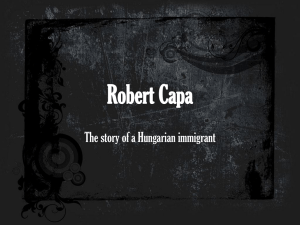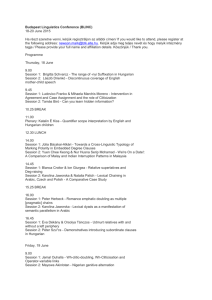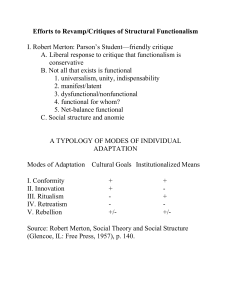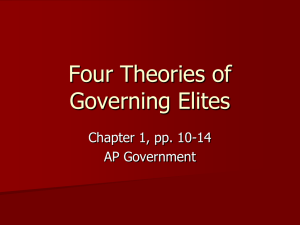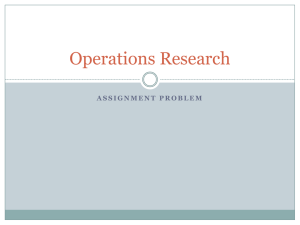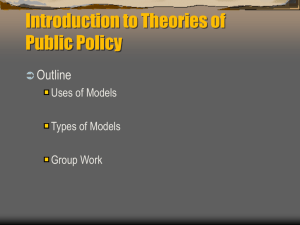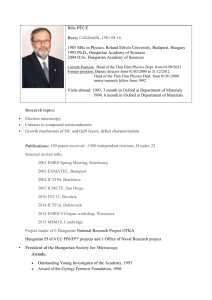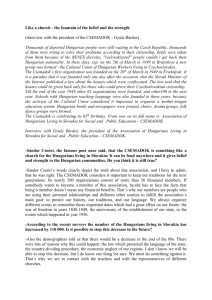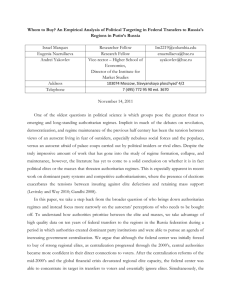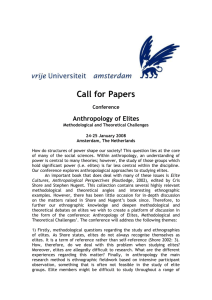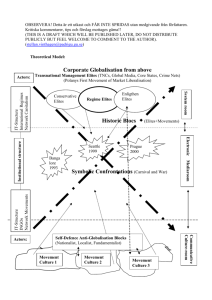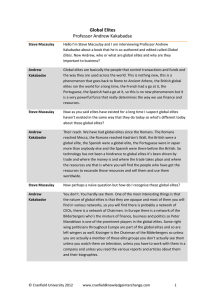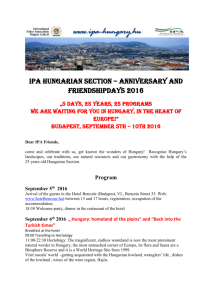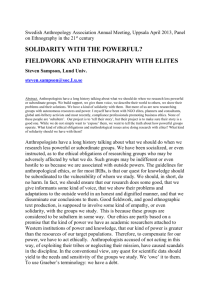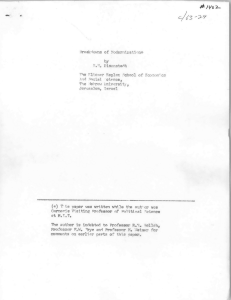Problems of the Territorial Concentration of
advertisement
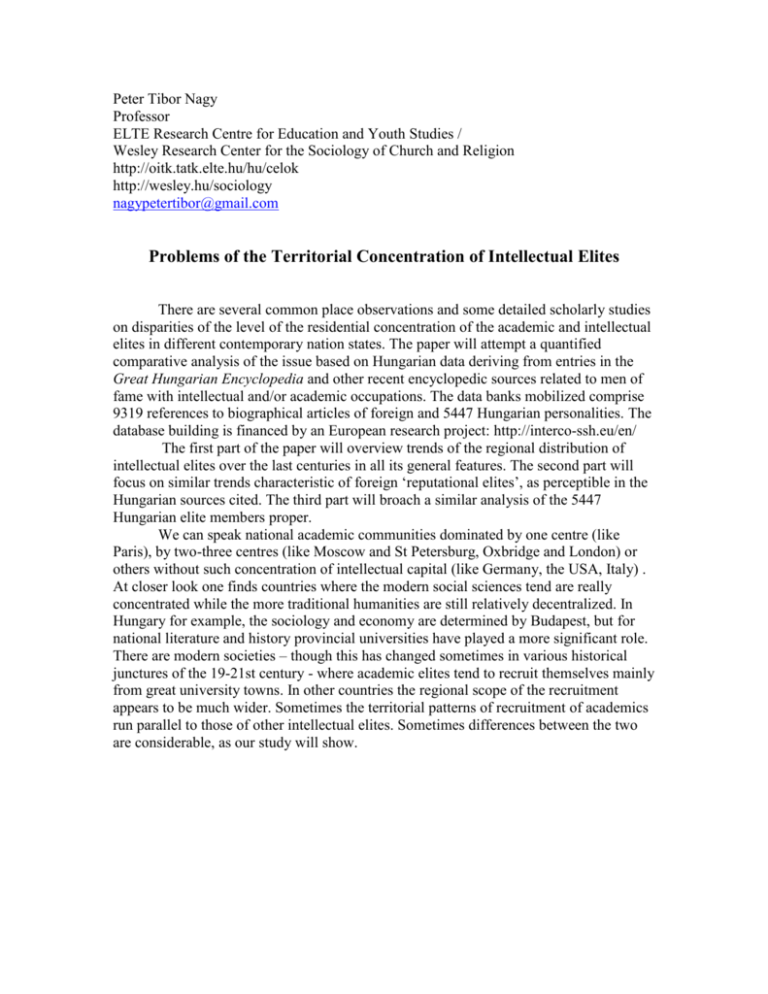
Peter Tibor Nagy Professor ELTE Research Centre for Education and Youth Studies / Wesley Research Center for the Sociology of Church and Religion http://oitk.tatk.elte.hu/hu/celok http://wesley.hu/sociology nagypetertibor@gmail.com Problems of the Territorial Concentration of Intellectual Elites There are several common place observations and some detailed scholarly studies on disparities of the level of the residential concentration of the academic and intellectual elites in different contemporary nation states. The paper will attempt a quantified comparative analysis of the issue based on Hungarian data deriving from entries in the Great Hungarian Encyclopedia and other recent encyclopedic sources related to men of fame with intellectual and/or academic occupations. The data banks mobilized comprise 9319 references to biographical articles of foreign and 5447 Hungarian personalities. The database building is financed by an European research project: http://interco-ssh.eu/en/ The first part of the paper will overview trends of the regional distribution of intellectual elites over the last centuries in all its general features. The second part will focus on similar trends characteristic of foreign ‘reputational elites’, as perceptible in the Hungarian sources cited. The third part will broach a similar analysis of the 5447 Hungarian elite members proper. We can speak national academic communities dominated by one centre (like Paris), by two-three centres (like Moscow and St Petersburg, Oxbridge and London) or others without such concentration of intellectual capital (like Germany, the USA, Italy) . At closer look one finds countries where the modern social sciences tend are really concentrated while the more traditional humanities are still relatively decentralized. In Hungary for example, the sociology and economy are determined by Budapest, but for national literature and history provincial universities have played a more significant role. There are modern societies – though this has changed sometimes in various historical junctures of the 19-21st century - where academic elites tend to recruit themselves mainly from great university towns. In other countries the regional scope of the recruitment appears to be much wider. Sometimes the territorial patterns of recruitment of academics run parallel to those of other intellectual elites. Sometimes differences between the two are considerable, as our study will show.



